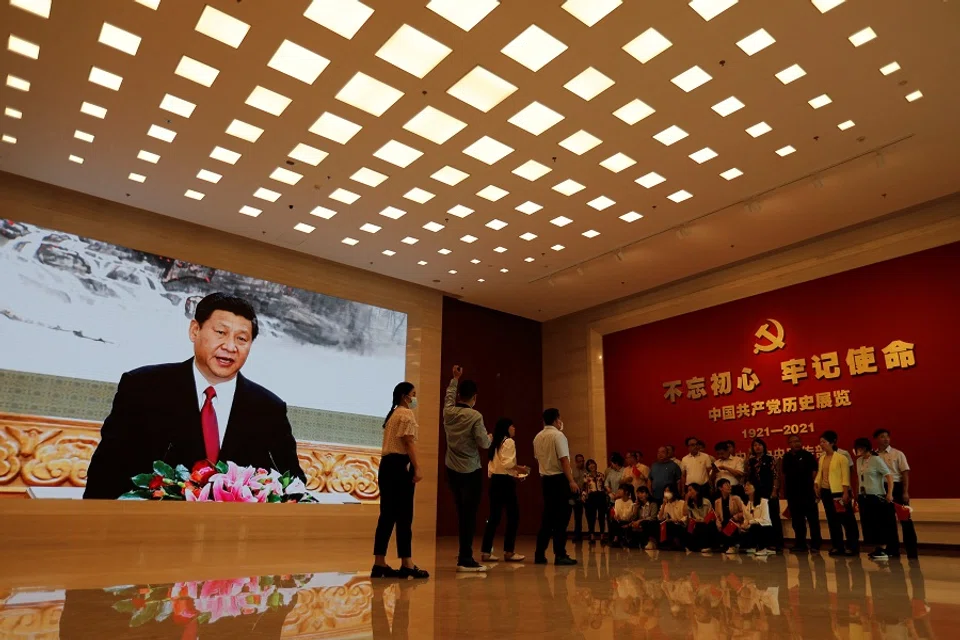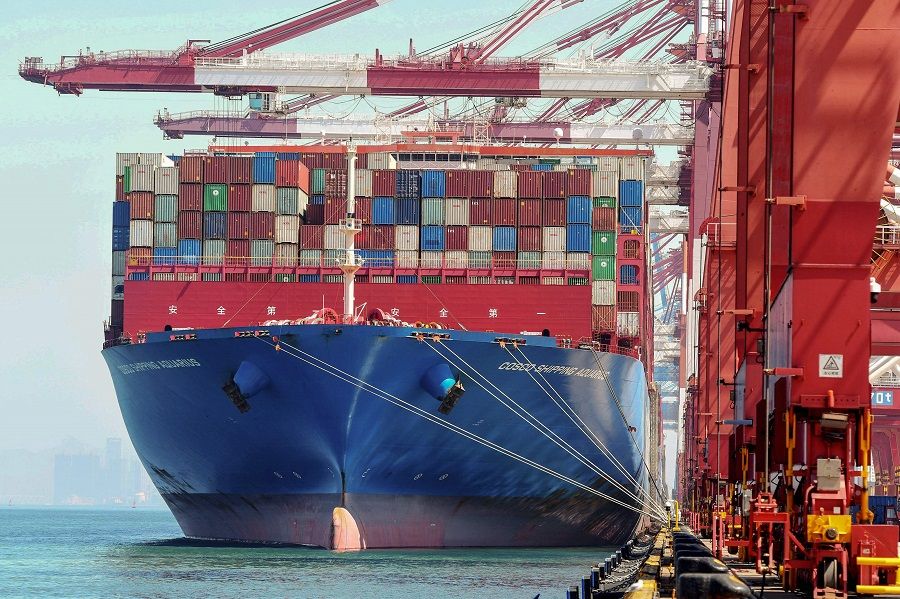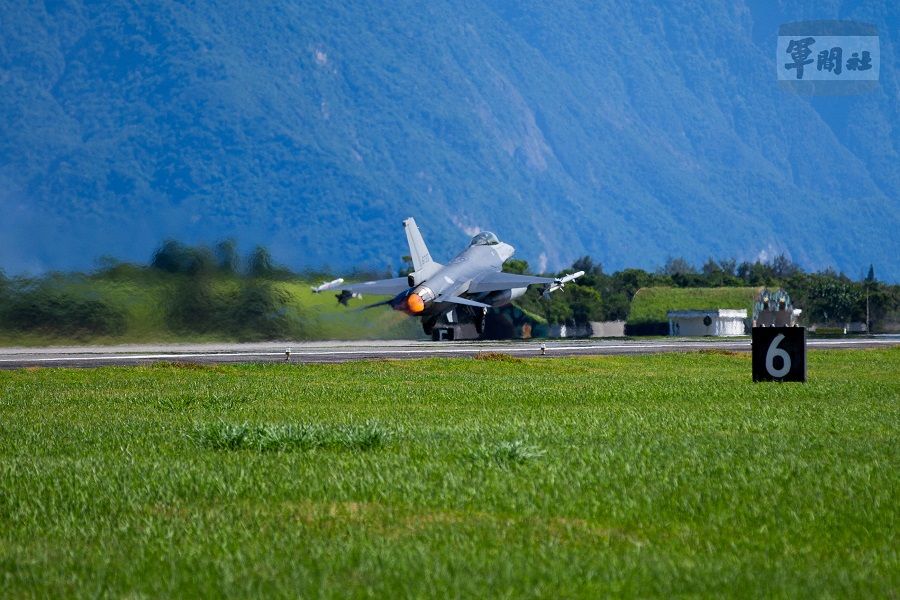[Future of China] Xi Jinping and the world: Retrospect and prospect

When Xi Jinping assumed leadership of the Chinese Communist Party (CCP) in 2012, China remained a cautious power promoting stability in East Asia and beyond. Since then, Xi has transformed Chinese foreign policy. He has developed the policy of a rising power, advancing once-deferred Chinese regional and global objectives. Whereas under Hu Jintao and his predecessors, China adhered to Deng Xiaoping's advice to keep a low profile and bide its time, under Xi Jinping, China is a revisionist power.
Xi Jinping and rising China's revisionist successes
In 2012, Xi Jinping launched the expansion of the Chinese Navy and China's emergence as a rival East Asia maritime power of the US. Ten years later, China has a modern navy that is larger than the US Navy. It will soon have a 400-ship navy, with advanced destroyers and submarines, as well as aircraft carriers, and its lead over the US navy continues to grow. The US Navy no longer dominates the South China Sea and China now competes with the US in a bipolar East Asia.
America's security partners have increasingly accommodated China's rising naval power by moving toward equidistance between China and the US.
Since the 1950s, US alliances and its air and naval bases encircled Chinese coastal waters from the Korean peninsula through the South China Sea. But the presence of the Chinese Navy throughout the region has changed the regional order. America's security partners have increasingly accommodated China's rising naval power by moving toward equidistance between China and the US. They no longer cooperate with the US to challenge Chinese maritime claims. With the exception of Japan, the US can no longer count on its post-World War II security partners to sustain its military presence in East Asia waters.
Xi Jinping has also wielded economic power to advance Chinese interests. China's economic influence has contributed to its neighbours' policy adjustment to accommodate Chinese interests. No East Asian country can afford reduced access to the Chinese market. Chinese economic retaliation against South Korea, the Philippines, and Vietnam for their security cooperation with the US has persuaded countries throughout the region to reduce their alignment with the US against China.

Under Xi Jinping, China became a global economic power. With its Belt and Road Initiative and its international lending banks, it has challenged US global leadership. It is the most important source of financial assistance and infrastructure development in the developing world - in Latin America, Africa, South Asia, Central Asia, and the western Pacific Ocean - as well as for countries in East Asia and Europe. When countries need project support, their first option is to turn to China for assistance. China has become the "can-do" country for global development, contributing to its global influence and prestige.
Xi Jinping's rising power diplomacy and China's security and economic initiatives have led to inevitable US resistance and to heightened US-China competition.
No pain, no gain: the costs of success
Xi Jinping's rising power diplomacy and China's security and economic initiatives have led to inevitable US resistance and to heightened US-China competition. Adjusting to the revised East Asian security order, the US has strengthened security cooperation with India, Australia and Japan. China now contends with growing US air and naval presence on the perimeter of East Asia, "containing" China within East Asian waters, and deteriorating security relations with India, Australia and Japan.
Xi's China has faced greater resistance in realising the unification of Taiwan. As China has challenged US security in East Asia, the US has revised its Taiwan policy. While maintaining its declaratory "one China" policy, it has elevated US-Taiwan diplomatic contacts and strengthened its military assistance to Taiwan security against rising China. And the US has found a willing partner in Taiwan. The Taiwan people's antipathy toward the CCP has strengthened Taiwan's resistance to greater cross-strait economic and political cooperation and encouraged Taiwan to strengthen security cooperation with the US to bolster its resolve to resist Chinese pressure for unification.
Xi's challenge to US security and global leadership has also contributed to heightened US-China economic tension.

Xi Jinping's military programme has strengthened Chinese deterrence of a Taiwan declaration of independence. But over the past five years, the trend in cross-strait relations has been away from unification and toward consolidated de-facto Taiwan independence. China's August 2022 military exercises around Taiwan reflected its intent to constrain US policy and to curtail this trend.
Xi's challenge to US security and global leadership has also contributed to heightened US-China economic tension. To slow the growth of China as a world power, the US has launched a trade war and a technology war. And it has persuaded European countries to constrain Chinese access to their digital infrastructures and to their advanced technologies. US policy confronts Xi Jinping with a major challenge to sustain China's technology development and the rise of China.
The US has launched an ideological/human rights campaign against China. To consolidate domestic and international resistance to Chinese policy, it has accused the Chinese leadership of genocide in Xinjiang and its autocratic system of undermining the "rules-based international order", putting China on the defensive in Europe and in international organisations.
The Ukraine challenge to the rise of China
As Xi Jinping prepares for his third term as general secretary of the Chinese Communist Party, he must contend with the impact of the Ukraine war on China's ability to manage the costs and benefits of China's rise. China has not provided consequential material assistance to Russia's war in Ukraine, but its diplomatic support for Russia has contributed to hardening US and European resistance to China's rise.
The Ukraine war has not interrupted the rise of China or undermined its regional and global accomplishments. But it has consolidated and accelerated the adverse trend of US-China strategic and economic competition and reduced the likelihood of US-China cooperation over regional and global issues, including over North Korea, Iran, drug trafficking, and climate change.
Despite the pushback against the rise of China, over the past ten years the benefits have outweighed the costs for Chinese interests.

Despite the pushback against the rise of China, over the past ten years the benefits have outweighed the costs for Chinese interests. China enjoys greater security on its maritime perimeter in East Asia, its foremost priority, and it is now an economic great power with influence and prestige around the globe. But China remains challenged by the trends in cross-strait relations and in US-China relations and these challenges are likely to grow as the war in Ukraine deepens the divide between China and the US.
In his third term as general secretary, Xi Jinping's most important foreign policy objective will be to continue to advance Chinese security and economic interests and reverse the trends in cross-strait relations, while ensuring that the costs do not exceed the benefits and derail the rise of China.
Related: [Future of China] Chinese youth under Xi Jinping's Red Flag: Political participation as a route to riches | [Future of China] China's economy now and in the future | [Future of China] China's ten-year-old BRI needs a revamp | [Future of China] China's BRI seems irreplaceable, for now | In the China-US-Russia confrontation, it is military power that counts in the end | The Taiwan Strait crisis has strengthened Xi Jinping's position | Three big changes in China-US competition after Pelosi's Taiwan visit
